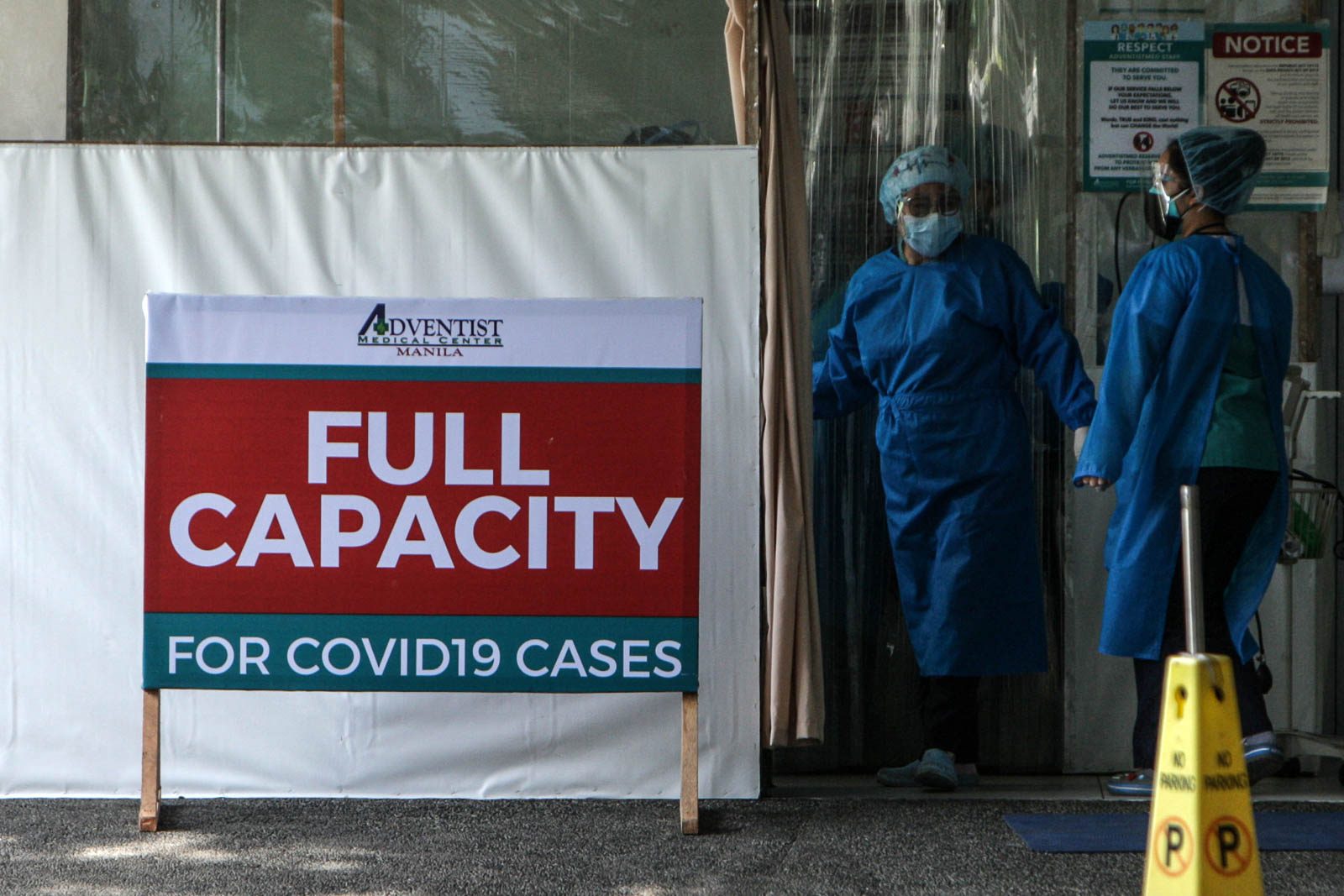SUMMARY
This is AI generated summarization, which may have errors. For context, always refer to the full article.

Experts studying the coronavirus outbreak in the Philippines on Saturday, April 3, recommended an extension of at least one week for hard lockdowns in Metro Manila and 4 surrounding provinces.
“If the [enhanced community quarantine] can be extended, we’re suggesting two weeks. Why? Because….it’s crystal [clear] to everyone that based on the data, neither the R is going down significantly, [nor is the] hospital utilization going down significantly,” Professor Ranjit Rye of the Octa Research group said in a Saturday press conference.
Octa’s April 2 report showed that the reproduction number (R) in the capital region had decreased to 1.58 since the start of the ECQ, meaning that one person positive for the virus was now infecting at least one other person.
If the R does not drop dramatically in the next 7 days, the government has to be prepared to consider another week of ECQ, Rye said.
On Friday, Octa Research reported a significant drop in cases recorded in Metro Manila since ECQ was imposed.
The “NCR Plus” area – referring to Metro Manila, Cavite, Laguna, Rizal, and Bulacan – is under lockdown or enhanced community quarantine (ECQ) until Sunday, April 4.
President Rodrigo Duterte placed the Greater Manila Area on lockdown for one week starting March 29 following a record-high surge in COVID-19 cases – the worst the country has seen so far.
The Inter-Agency Task Force on Emerging Infectious Diseases (IATF-EID) is meeting on Saturday and will discuss the fate of the “NCR Plus” lockdown. A decision is expected on Saturday.
Rye said it could be “extremely catastrophic” for the government to end ECQ when hospital capacities are still at critical levels. The right time to open the economy is only when the government is able to stem transmissions, Rye said.
“One week ECQ is certainly not enough; we are definitely not out of the woods. And we need an additional week and maybe more – it depends really on how effective our next ECQ will be in the next week,” said Rye.
Critical hospital occupancy through April
Octa fellow and molecular biologist Father Nicanor Austriaco said the country would see the lockdown’s full effect around April 7, as it takes time for a person to manifest symptoms and be registered as a confirmed case with the Department of Health (DOH).
The current case surge began in March. Because of an observed confinement period of 27 days, Austriaco said hospitals now still have to get initial patients of the surge through the hospital system.
Because the reproduction number is above 1 in its assumptions, Octa expects hospital occupancy to remain above 70% for the rest of April.
The government must strategize to lower the reproduction number to below 1, Austriaco said. If done, hospitals will be able to better handle the 27-day confinement period for COVID-19 survivors.
Aiding health workers
Apart from the recommendation to augment equipment like beds and ventilators, Octa Research also recommended that the government transport health workers from low-risk areas to the capital region.
“We urge the national government to consider transporting nurses and other health care workers from low-risk regions in the country to the NCR to assist their colleagues who are struggling with the ongoing surge in the capital,” said Rye.
Health workers also need more support, Octa said. These can be in forms of payments or ameliorations, as well as accommodations near their hospitals.
The experts also said that the national and local governments need to accelerate efforts to build quarantine and isolation facilities for mild cases. These would alleviate pressure on hospitals.
Senators on Saturday reminded the Philippine Health Insurance Corporation of its “social and moral obligation” to look after its members amid reports that the agency is not covering patients’ hospital tent expenses.
The DOH announced on Saturday that it has partnered with the World Health Organization (WHO) and UNICEF is fast tracking the delivery and set up of modular tents in hospitals across Metro Manila to augment their capacities.
The DOH also said that an initial 42 volunteer healthcare workers from regions with low COVID-19 cases will be deployed to select NCR DOH hospitals within the week, and that volunteers from Visayas and Mindanao will be deployed to Metro Manila in the coming weeks.
On Friday, April 2, the DOH reported the highest single-day increase in COVID-19 cases in the Philippines so far at 15,310 – though this includes 3,709 cases backlogged due to system technical issues last March 31. Of the total of 771,497 confirmed cases in the country, 153,809 are active cases. – Rappler.com
Add a comment
How does this make you feel?
There are no comments yet. Add your comment to start the conversation.